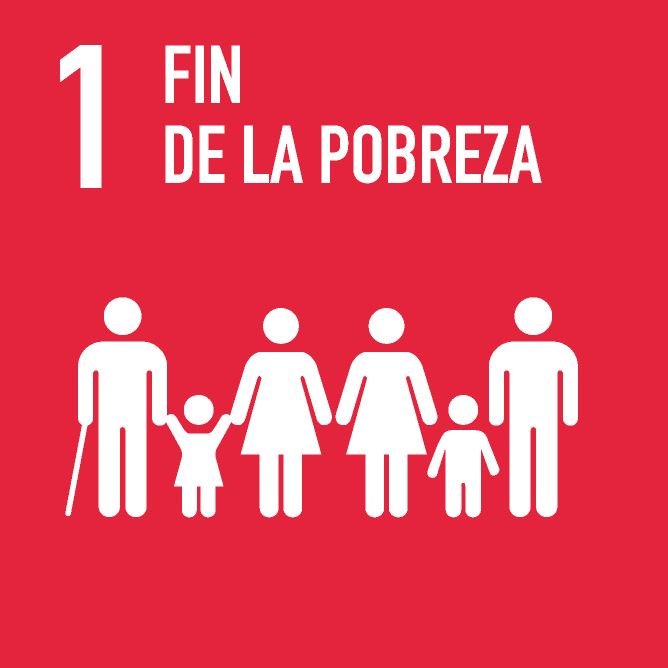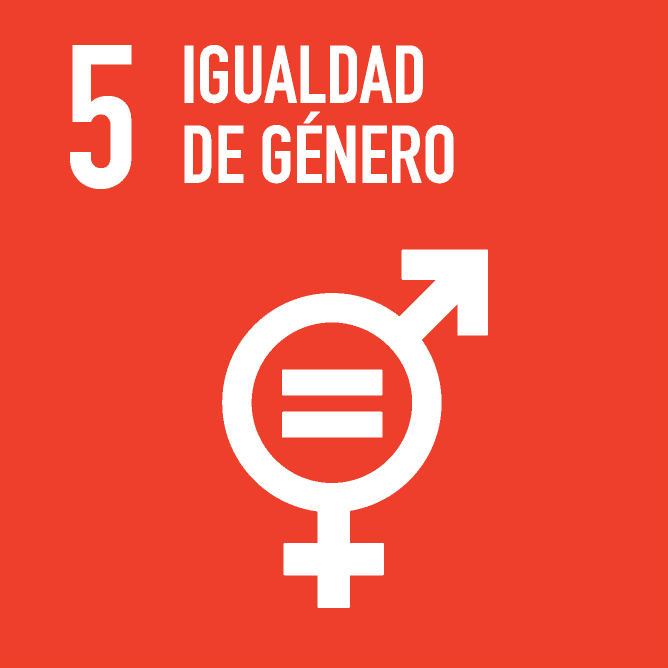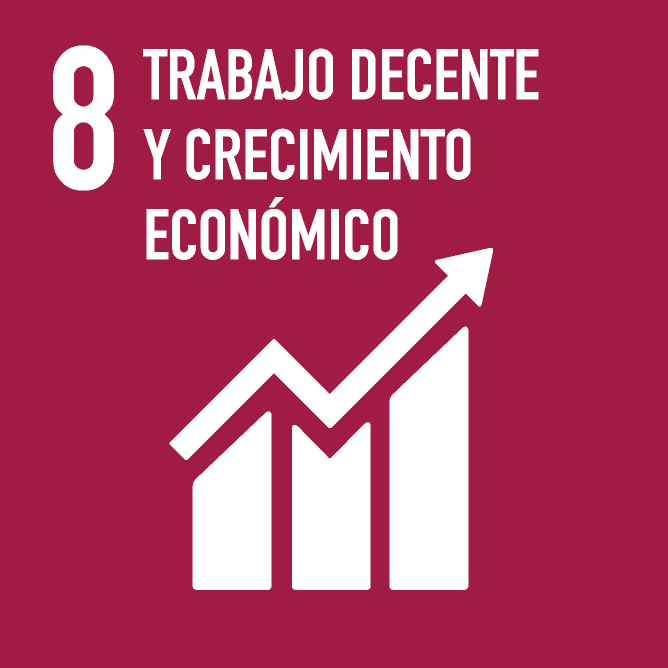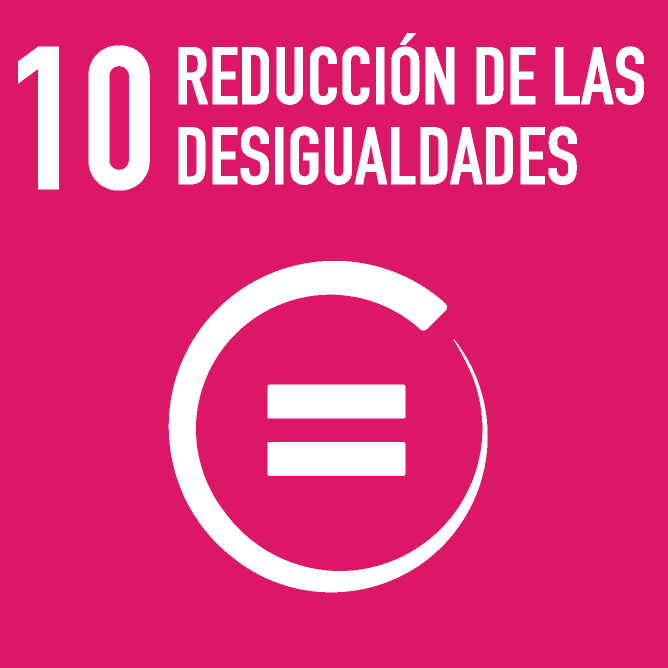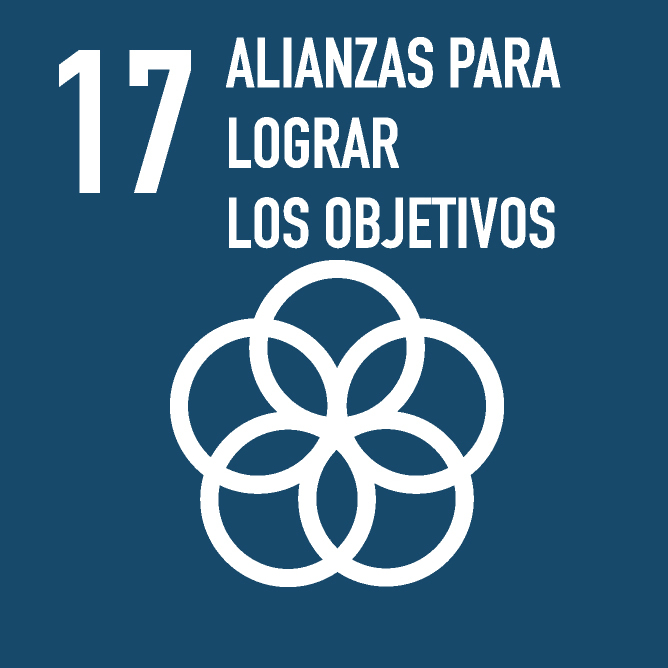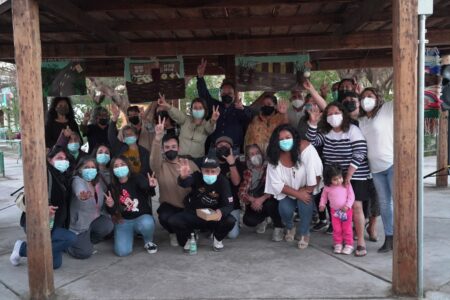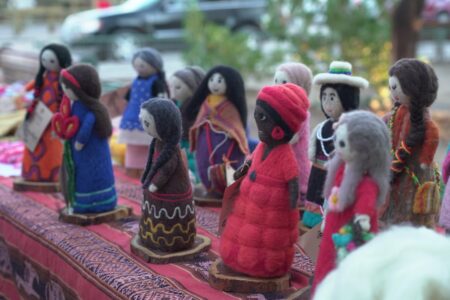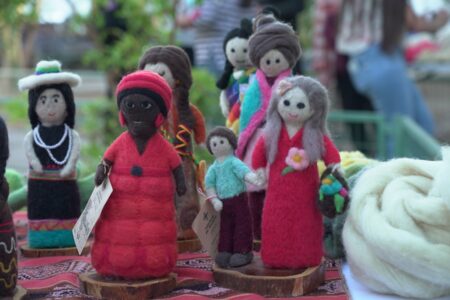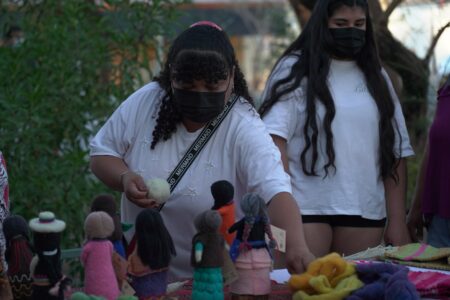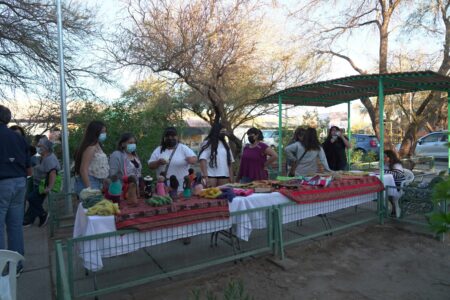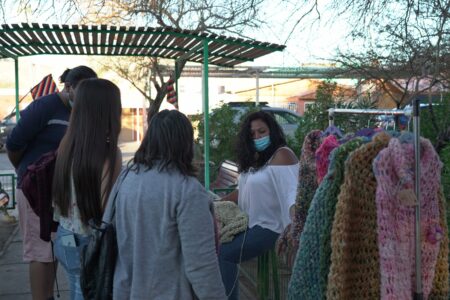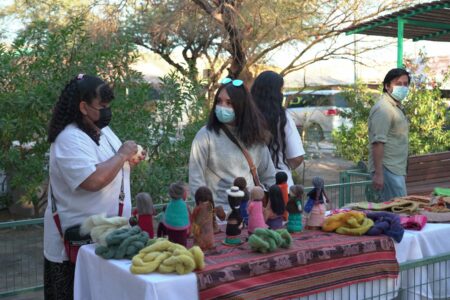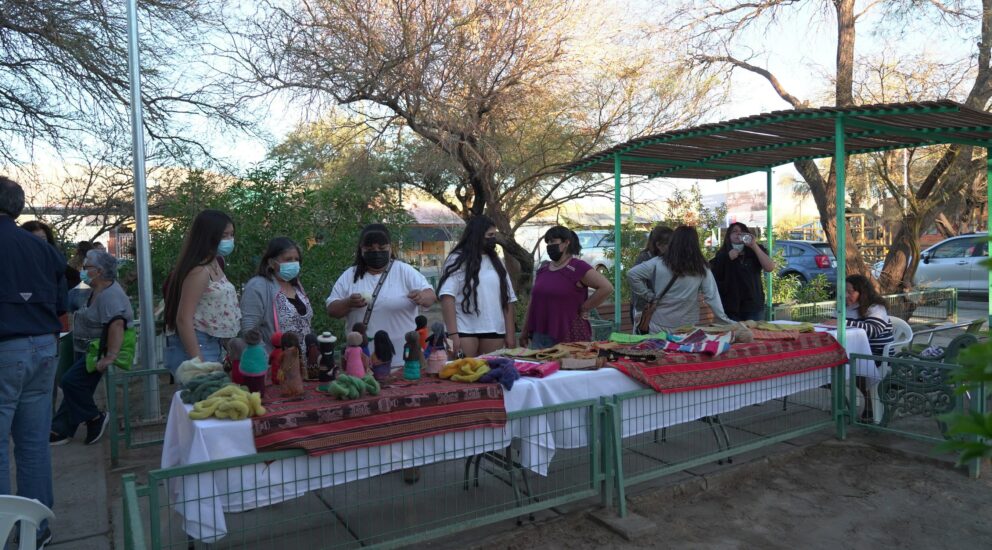
Quillagua Women Celebrate End of Weaving Workshop by Exhibiting their Creations
31/Aug/2021
Seeking to revive cultural heritage and strengthen the workshop participants’ household income, SQM offered a new version of the Weaving Workshop, where students learned how to produce wool, the 100% natural product that serves as the raw material for their weaved textiles and other products. Another new version of the workshop was announced at the exhibition.
With attractive samples, the women of Quillagua exhibited everything they had learned throughout the third phase of the Weaving Workshop. This SQM-driven initiative seeks to revive culture and add value to an ancestral tradition of the Aymara people consisting of making different textile products from natural wool produced during the classes from raw material sheared from the town’s llamas and sheep.
The exhibition marked the end of the third phase of the workshop and was attended by local authorities, SQM executives, tourism operators and the community at large. The gathering was held in the town’s main square to showcase the different products featuring Quillagua’s identity elements made by the students, who learned the traditional wool production process, from sheering local llamas and sheep to washing, drying, carding, and naturally dying.
The tools and knowledge acquired enable participants to start their own businesses and help develop local and household economies by marketing products in Chile and abroad.
Pablo Pisani, Director of Communications, Sustainability and Public Affairs at SQM, emphasized that this initiative is part of the company’s community work plan to revive heritage and “aims to generate a network surrounding attractive, traditional Quillagua products using natural wool produced from local animals, which helps create work for this group of women doing traditional weaving, thus favoring local development and a circular economy that can be very beneficial for Quillagua and have important outcomes for the region.”
Ancestral Tradition
Sandra Marín, a craftswoman and workshop leader from Antofagasta, who has vast experience reviving northern Chile’s heritage identity, once again led the workshop. She commented: “This time the participants learned the entire wool production and dying process, which is done using local plants such as resin from the algarrobo tree and sorona growing along the riverbank; these local species were used in all products at the show.
Workshop participant Evelyn Cortés remarked, “It is nice to learn about this. I realized that I had skills that I didn’t know about before. I have always liked to learn new things, but this is truly fulfilling because it is something that comes from our ancestors and, in some way, it is in our blood and that helps you to develop. It has been a very enriching experience.”
“I remember when I was very little how my great grandmother spun wool sheered from lambs and I never saw that again, which is why finding this again has been so meaningful. I would like to continue with everything I have learned because there is much more to learn and revive so that people get better acquainted with Quillagua’s culture and crafts,” said Patricia Guajardo, a participant in the initiative.
Meanwhile, Carmen Zamora, a councilwoman for María Elena who attended in the exhibit, explained: “This is a very important opportunity that adds value to the territory through the use of native materials and products made by local residents, which makes it even more meaningful, since this group of women can generate their own resources in the future. I wish them the best of luck with this initiative and hope they produce a lot and can show other towns.”
Held for the third year in a row, the workshop was offered virtually during the pandemic and featured new elements for participants. The initiative includes a new phase that will address key aspects of entrepreneurship such as formally starting a business, marketing and quality control.
Sustainable Development Goals
